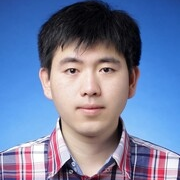Materials, Devices, and Systems Geared toward Becoming Carbon -Neutral
A special issue of Molecules (ISSN 1420-3049). This special issue belongs to the section "Materials Chemistry".
Deadline for manuscript submissions: closed (31 October 2021) | Viewed by 642
Special Issue Editors
Interests: mechanoplastic artificial synapse; triboiontronics; field effect transistor; E-skin; multifunctional sensors
Interests: advanced energy materials and devices; supercapacitors; vanadium redox flow battery; lithium ion batterieslithium ion batteries; carbon
Interests: stretchable organic electronics; flexible sensor; flexible planar microsupercapacitors; flexible energy conversion materials and devices; stretchable conductive fiber; carbon nanomaterials
Interests: green manufacturing and preparation of photosensitive materials
Special Issue Information
Dear Colleagues,
The whole world is intensively racing to become carbon neutral through a new globe carbon economy and low-carbon development model, because of the urgent energy and environment issues that are calling for efficient energy materials’ innovation. Worldwide, attention has been paid to effective strategies aiming toward energy reduction, energy harvesting, self-powered systems, carbon economy construction materials, and distributed energy storage technology and key equipment for urban rail transit, power grid, base station communication, big data, intelligent systems, etc. Innovative energy materials, cutting-edge devices, and systems play critical roles as a low-cost and high-efficacy means to future carbon neutral challenges. For instance, as listed below, (1) emerging triboelectric nanogenerators can harvest low frequency, high entropy, and highly distributed mechanical energy to drive versatile devices in low energy dissipation, e.g., distributed mechanoplastic neuromorphic sensors, interactive triboiontronic chips, and multifunctional devices; (2) self-powered systems are beneficial for low-power real-time monitoring and regulation in Internet of Things for industry, intelligent manufacturing, and transportation; (3) carbon economy construction materials, technology, and environmentally-friendly materials are critical in modern civil engineering; and (4) advanced energy materials and equipment are of great significance for efficient, low-cost, and safe energy storage in distributed urban rail transit, power grids, etc. Accordingly, driven by the imperative carbon neutral trend, this Special Issue is expected to receive reviews, communications, full papers, and perspectives concerning but not limited to, innovative energy materials, cutting-edge devices, and intelligent systems toward becoming carbon neutral.
Dr. Qijun Sun
Prof. Dr. Chuankun Jia
Prof. Dr. Rujun Ma
Prof. Dr. Guang Zhu
Guest Editors
Manuscript Submission Information
Manuscripts should be submitted online at www.mdpi.com by registering and logging in to this website. Once you are registered, click here to go to the submission form. Manuscripts can be submitted until the deadline. All submissions that pass pre-check are peer-reviewed. Accepted papers will be published continuously in the journal (as soon as accepted) and will be listed together on the special issue website. Research articles, review articles as well as short communications are invited. For planned papers, a title and short abstract (about 100 words) can be sent to the Editorial Office for announcement on this website.
Submitted manuscripts should not have been published previously, nor be under consideration for publication elsewhere (except conference proceedings papers). All manuscripts are thoroughly refereed through a single-blind peer-review process. A guide for authors and other relevant information for submission of manuscripts is available on the Instructions for Authors page. Molecules is an international peer-reviewed open access semimonthly journal published by MDPI.
Please visit the Instructions for Authors page before submitting a manuscript. The Article Processing Charge (APC) for publication in this open access journal is 2700 CHF (Swiss Francs). Submitted papers should be well formatted and use good English. Authors may use MDPI's English editing service prior to publication or during author revisions.
Keywords
- functional materials
- energy materials
- carbon economy construction materials
- environmentally-friendly materials and technology
- energy harvesting devices
- self-powered systems
- distributed energy storage
- carbon neutral
Benefits of Publishing in a Special Issue
- Ease of navigation: Grouping papers by topic helps scholars navigate broad scope journals more efficiently.
- Greater discoverability: Special Issues support the reach and impact of scientific research. Articles in Special Issues are more discoverable and cited more frequently.
- Expansion of research network: Special Issues facilitate connections among authors, fostering scientific collaborations.
- External promotion: Articles in Special Issues are often promoted through the journal's social media, increasing their visibility.
- Reprint: MDPI Books provides the opportunity to republish successful Special Issues in book format, both online and in print.
Further information on MDPI's Special Issue policies can be found here.







